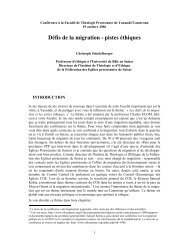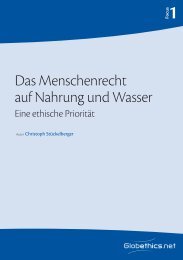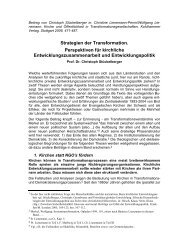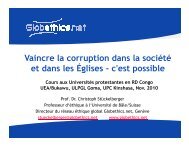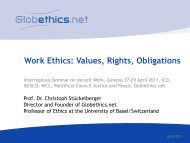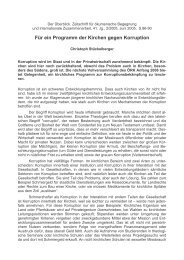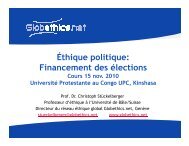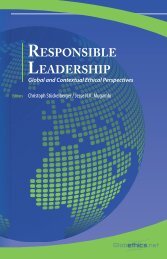BREAK THE CHAINS OF OPPRESION AND THE YOKE OF ...
BREAK THE CHAINS OF OPPRESION AND THE YOKE OF ...
BREAK THE CHAINS OF OPPRESION AND THE YOKE OF ...
Create successful ePaper yourself
Turn your PDF publications into a flip-book with our unique Google optimized e-Paper software.
Litur gy<br />
chosen was that one of the conference languages was German, a language with<br />
which I am familiar. The subject matter of the conference - the historical developments<br />
within both the REC and WARC, especially in relation to the Accra<br />
declaration - had up till that point been distant information which occasionally<br />
had landed on the desk in my study together with other mailing regarding the<br />
wide variety of subject matters with which a parish minister in the Church of<br />
Scotland has to contend with when not dealing with flaring tempers on the<br />
Congregational Board over malfunctioning central heating systems or savouring<br />
the peculiar delights of attending the town council’s meetings to unravel the<br />
mysteries of parking, legal and illegal, outside the church’s premises.<br />
Having arrived at the conference as a bit of an innocent abroad regarding not<br />
only the intricacies of the Swiss public transport system which was to convey me<br />
to the conference centre, but also on the subject matter itself, despite having immersed<br />
myself in any papers I could lay my hands on, I then discovered myself to<br />
be in the peculiar situation of being asked within half an hour of arrival whether<br />
I would consider conducting a communion service. Tomorrow.<br />
This particular communion service is the reason of my having been included in<br />
the list of contributors to this publication. An analysis of this particular liturgy<br />
cannot be offered in retrospect as the notes of the liturgy are no longer extant.<br />
While some of the overall considerations which determined the crafting of this<br />
particular liturgy can still be recalled, this article shall reflect on wider issues of<br />
the liturgy of Holy Communion in general rather than the particular liturgy on<br />
which the editor’s request had been based.<br />
I write as a parish minister and as a theologically reflective practitioner. I also<br />
write from a particular � �cultural �context and a particular � � theological background<br />
which may require of some readers an act of translation, modification or even<br />
contradiction for their particular cultural, ecclesiastical and theological contexts.<br />
This much as background information which may or may not prove useful: the<br />
author is an ordained minister of the (Presbyterian) Church of Scotland serving<br />
in one of that country’s socially and economically more deprived areas. The author<br />
also, if asked to define herself theologically would claim to be Calvinist in<br />
her general disposition, though hopefully not uncritically so, having enjoyed a<br />
Lutheran childhood and also an immersion into Roman-Catholicism during her<br />
student years.<br />
Covenant. Justice. Communion. Liturgy. Each of these subject matters deserves<br />
attention in its own right, yet the request had been made, based on the experience<br />
of that one Communion service led by the author together with an Irish<br />
colleague at the above mentioned conference, that she reflect on matters of liturgy<br />
and communion, liturgy and justice, Holy Communion and justice.<br />
��������������������������������������������<br />
� � � � � ��������������������<br />
�<br />
– <strong>THE</strong> LITURGY <strong>OF</strong> HOLY COMMUNION – 99



